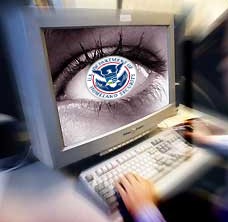3 Easy Internet Security Tips to Celebrate National Cybersecurity Awareness Month
 In celebration of this month (October) being National Cybersecurity Awareness Month sponsored by the United States Department of Homeland Security, we have 3 simple security tips to help keep you safe from dangerous computer malware infections.
In celebration of this month (October) being National Cybersecurity Awareness Month sponsored by the United States Department of Homeland Security, we have 3 simple security tips to help keep you safe from dangerous computer malware infections.
If cybersecurity is never on your mind, you should start thinking about it now because chances are it will affect you and your loved ones in some form or fashion in the near future. Just a couple years ago, it was estimated that half a million computers were infected with some form of malware everyday according to Panda Security. Today we estimate that that number has increased to new exceptional numbers if you take into consideration how malware spreads these days.
Hackers are resorting to social networks to spread infections such as Facebook and Twitter, which literally have hundreds of millions of users. Spam email messages that could potentially contain malware-laced links or attachments account for over 50% of email received by home users and over 80% of email received in companies. Sophisticated malware has been used in recent events to attack Nuclear power plants, putting the thought of nuclear proliferation in the minds of officials. All of these factors contribute to cybersecurity being a priority for the U.S. Department of Homeland Security and other security authorities around the world today.
What can we all do to combat cybercrooks and help put a stop to the spreading of malware? Everyone can do their part to help fight the spread of malware not only during National Cybersecurity Awareness Month but all year long by following a few simple tips.
Table of Contents
Here are a few simple steps that every one of us can take to keep ourselves protected and help stop the spread of malware.
Tip #1 Install, update and run anti-virus/anti-spyware software
This is possibly the easiest and most important thing you can do, make sure you are running updated anti-virus and/or anti-spyware software on your computer. By having an updated anti-virus or anti-spyware application installed and running on your system, you would be in a position to proactively detect and stop malware. Some types of malware are able to spread easily from computers that are connected to the Internet. Your first line of defense against cybercrime is an anti-virus or anti-spyware application. You must also remember that an anti-virus or anti-spyware software is not a full-proof solution to preventing malware. You must also setup your anti-virus/anti-spyware to perform scheduled scannings and implement safe internet surfing practices. This can be done by following our 'Essential Safety Tips to Remember When Surfing Online'.
Tip #2 Setup a firewall
A firewall is software that is designed to block incoming connections from the Internet or computer network. A firewall essentially stops an outside attacker from accessing unused ports on your computer leading to theft of personal data. Some routers have built-in firewalls so it is best to check with the manufacturer of yours to utilize the firewall feature. Recent versions of the Windows operating system such as Windows XP, Vista and 7 have built in firewall software. To access the firewall software, you must go to your control panel and then access 'Security Center' or 'Windows Firewall'. Make sure the firewall option is turned 'on'.
Tip #3 Educate yourself on what is harmful to your computer
Learning what can potentially infect your system with dangerous malware can be the difference in becoming a victim of identity theft or someone who saves themselves from the pitfalls of Internet fraud. You can read our 'Top 5 Common Mistakes That Lead to Malware Infections on Your Computer' to find out if your every-day actions over the Internet are putting you at an unnecessary risk for a malware infection.
It is suggested that you treat every month like it is National Cybersecurity Awareness Month. When was the last time that you updated your anti-virus or anti-spyware software? Do you use a firewall? Have you educated yourself on online dangers that can lead to a malware infection?